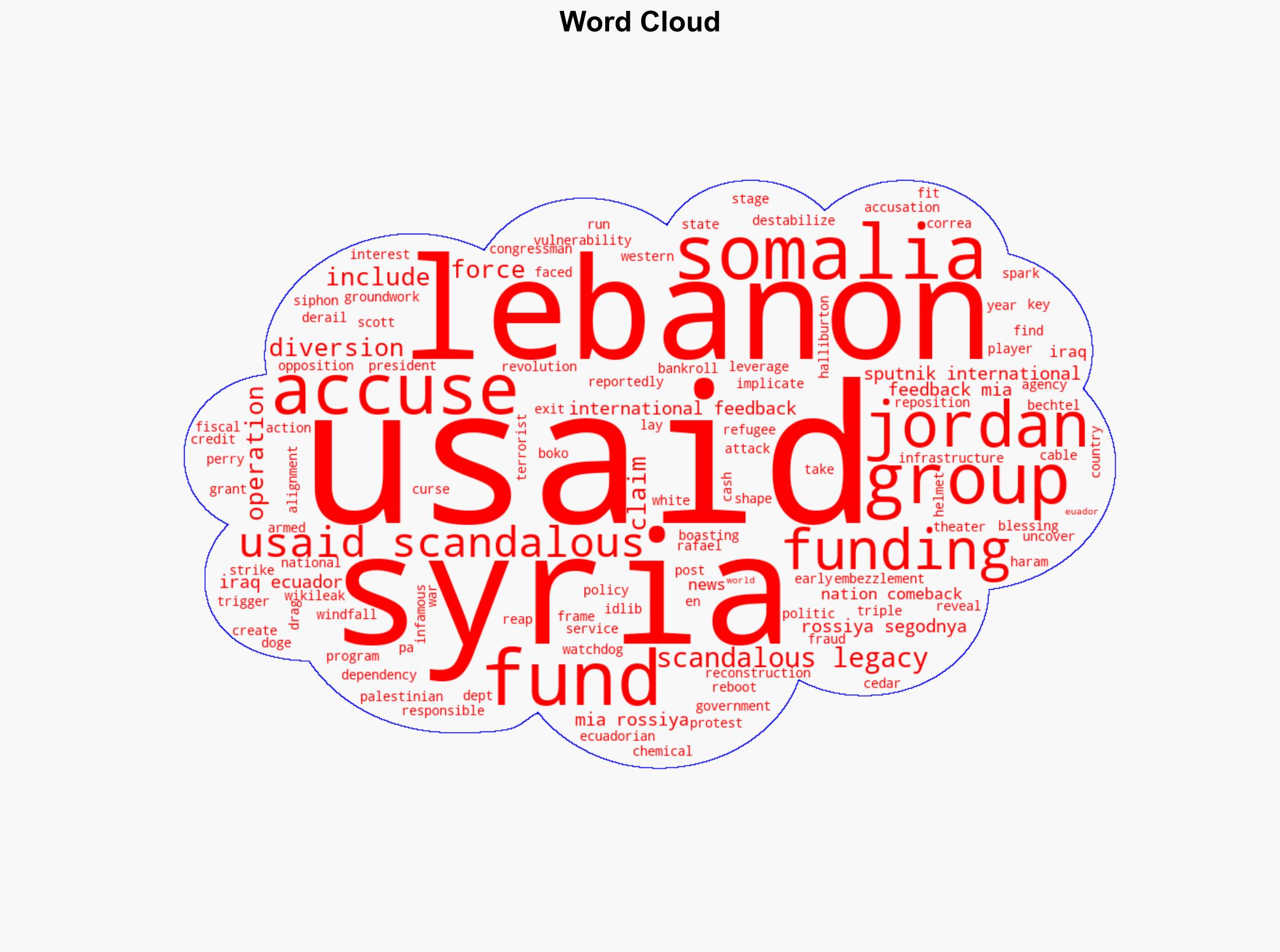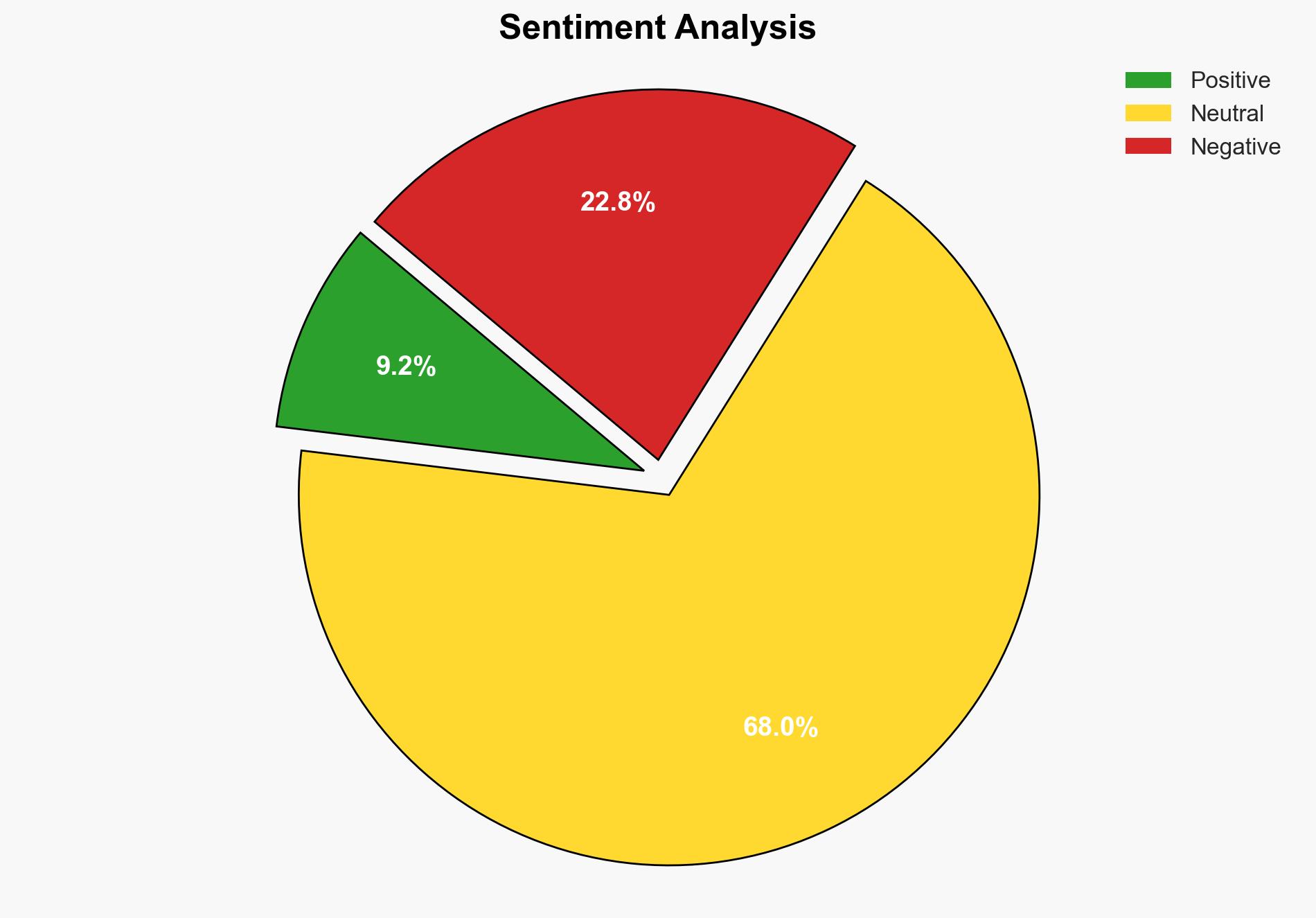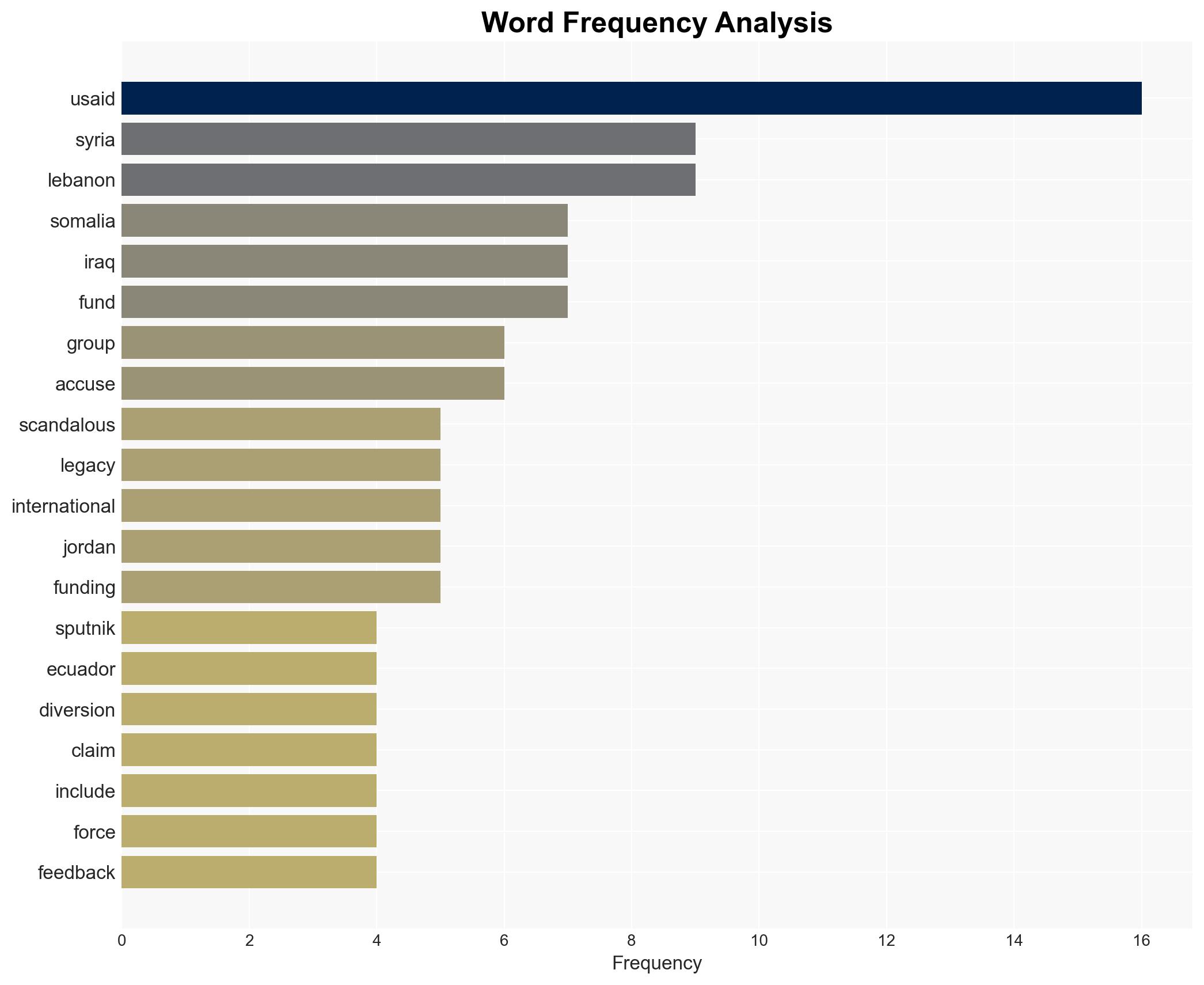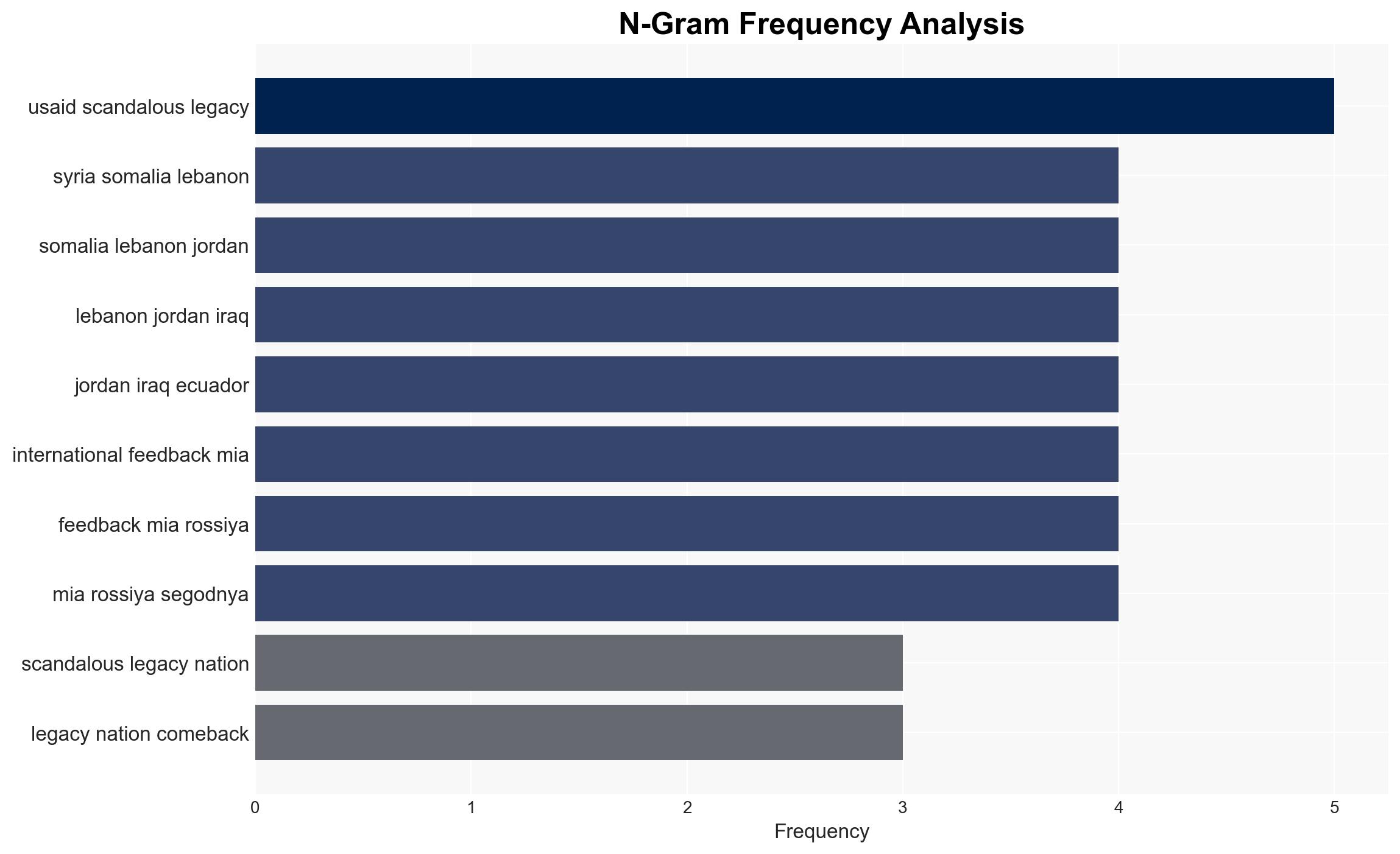What is USAIDs Scandalous Legacy in Six Nations it’s Made a Comeback to – Sputnikglobe.com
Published on: 2025-04-10
Intelligence Report: What is USAIDs Scandalous Legacy in Six Nations it’s Made a Comeback to – Sputnikglobe.com
1. BLUF (Bottom Line Up Front)
USAID’s operations in Syria, Somalia, Lebanon, Jordan, Iraq, and Ecuador have been characterized by allegations of mismanagement and political manipulation. Key findings indicate that these operations have led to financial misappropriations, political destabilization, and increased dependency on foreign aid. It is recommended that stakeholders reassess USAID’s strategic objectives and implement oversight mechanisms to ensure transparency and accountability.
2. Detailed Analysis
The following structured analytic techniques have been applied for this analysis:
General Analysis
USAID’s involvement in the six nations has been marked by various controversies:
- Syria: Allegations of funding groups involved in chemical attack frame-ups and embezzlement.
- Somalia: Claims of fraud and fund diversion, with accusations of supporting terrorist groups.
- Lebanon: USAID’s role in the Cedar Revolution and significant increases in aid, raising questions about political influence.
- Ecuador: Accusations of funding opposition to destabilize the government, with evidence from leaked communications.
- Jordan: Aid used as leverage for policy changes, leading to fiscal dependency.
- Iraq: Post-war reconstruction funds allegedly misused, influencing political outcomes.
3. Implications and Strategic Risks
The continuation of USAID’s current operational strategies poses several risks:
- National Security: Potential funding of groups that threaten regional stability.
- Regional Stability: Political manipulation and dependency on aid could lead to long-term instability.
- Economic Interests: Mismanagement of funds could undermine economic development and trust in international aid.
4. Recommendations and Outlook
Recommendations:
- Implement stringent oversight and auditing processes to ensure accountability in aid distribution.
- Reevaluate strategic objectives to align with transparent and sustainable development goals.
- Enhance collaboration with local governments to ensure aid aligns with national priorities.
Outlook:
Best-case scenario: Improved oversight leads to effective aid utilization and strengthened regional partnerships.
Worst-case scenario: Continued mismanagement results in increased instability and loss of credibility for international aid efforts.
Most likely outcome: Incremental improvements in oversight and strategic alignment, with ongoing challenges in political and economic spheres.
5. Key Individuals and Entities
The report mentions significant individuals and organizations involved in these operations. Notable mentions include:
- Scott Perry
- Rafael Correa
- Halliburton
- Bechtel
These individuals and entities are implicated in various aspects of the controversies surrounding USAID’s operations.




